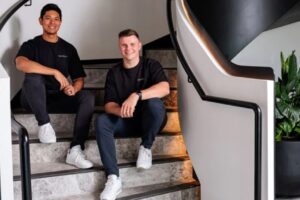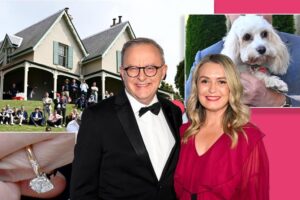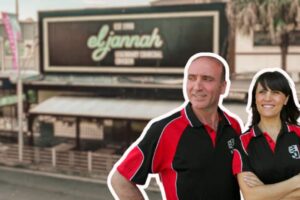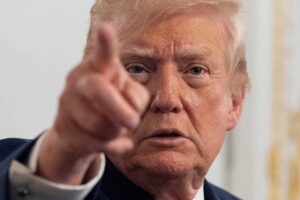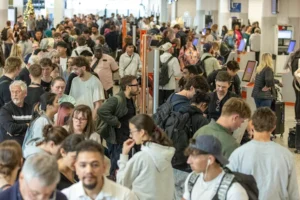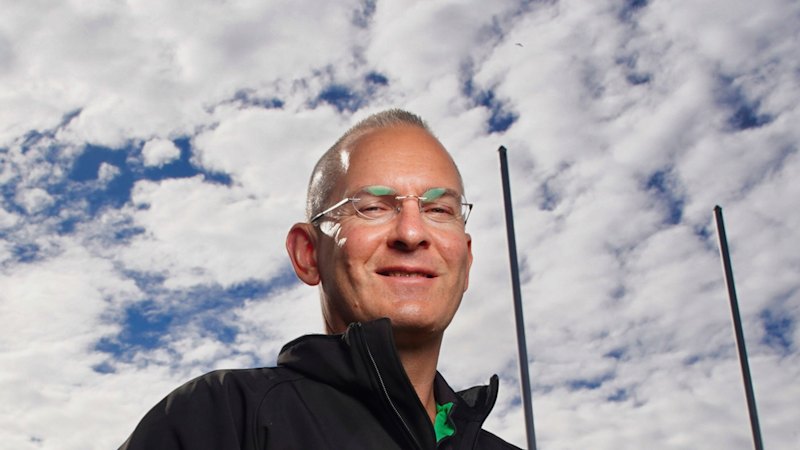
Normal text sizeLarger text sizeVery large text size
In this special series, The Age focuses on Melbourne’s western suburbs to see how life could improve in Australia’s fastest-growing region.See all 6 stories.
Voters in Melbourne’s fast-growing west feel taken for granted by Labor. From perpetually congested roads and fears of rising youth crime to a sense of being overlooked for major infrastructure – a feeling crystallised by the $35 billion Suburban Rail Loop soon to be tunnelled through the east – the grievances are clear.
The region is home to a large proportion of small business owners and has pockets of high religiosity and social conservatism – all factors that should make the Liberals competitive.
Yet the Liberal Party appears no closer to breaking the “red wall”.
The Werribee byelection in February, sparked by former treasurer Tim Pallas’ retirement, was seen as the Liberals’ greatest chance. Federal Labor was on the nose and Premier Jacinta Allan’s popularity at record lows, but the Liberals fell just short.
While Labor’s primary vote crashed by more than 16 per cent, the Liberals picked up a modest 3.7 per cent. The remainder of the protest vote was dispersed among independents and minor parties, highlighting the fundamental challenge the Liberals face in winning over disaffected, generational Labor voters.
And while every western suburbs seat swung against Labor at the 2022 state election, margins in most remain large, and there were few substantial primary vote swings to the Liberals. The most marginal seat, Melton, showed signs of stabilising for Labor.
A missed opportunity
Pollster Kos Samaras, a former ALP campaign manager, said voters in the outer western suburbs were young, very diverse, highly mortgage-stressed and open to alternatives.
“So, they have low levels of loyalty to Labor, but they dislike the Liberal Party even more,” he said.
Samaras believes the Werribee byelection was the Liberals’ moment, and they would now likely focus on more traditionally winnable seats in Melbourne’s east.
Victorian Premier Jacinta Allan with John Lister, who won the Werribee byelection in February. Labor’s primary vote crashed more than 16 per cent.Credit: Luis Enrique Ascui
He said he saw no prospect of a Liberal win in the west, but believed a well-known local independent could win a seat.
Over coming months The Age is strengthening its focus on Melbourne’s booming west with a special series examining the positives and challenges for the region. In October, our reporters will moderate a West of Melbourne Economic Development Alliance’s (WoMEDA) summit to discuss a vision for the western suburbs’ success. The alliance of university, industry, community and local government experts works to unlock the west’s economic potential.
Werribee independent candidate Paul Hopper, who secured 14.6 per cent of the primary vote in the byelection to finish third, said voters were desperate for an alternative but were not ready to vote Liberal.
The party’s high-profile internal wars, including the ongoing legal saga between Western Metropolitan MP Moira Deeming and former leader John Pesutto, had led voters to believe it was not fit to govern, he said.
Paul Hopper is now part of The West Party, which he says will stay in the “sensible centre” of politics.Credit: Luis Enrique Ascui
“They spent a lot of time and money on legal cases as opposed to trying to win the hearts and minds of local people,” Hopper said. “Politicians should be busy working for us.”
Hopper is now part of a new group called The West Party, which he said would remain in the “sensible centre” of politics. He said voters wanted a local member focused on issues such as family, roads, public health and safety.
“People out here have absolutely had a gutful of the crime from teenagers,” Hopper said. “But the big gap … is in support and wraparound services for young kids who are at the early stages of heading down the wrong path.”
The Liberals maintain Hopper’s decision not to do a preference deal was the reason they lost the byelection. But Hopper, who said most of his voters were former Labor supporters, plans to do the same next year.
Loading
How to win the west
Despite the pollsters’ doubts, Liberals see a pathway to victory in the outer west, and will target the western suburbs seats of Melton, Point Cook, Werribee, Tarneit, St Albans and Sunbury, as well as Niddrie and Sydenham in the north-west.
Former Liberal Point Cook candidate Angela Newhouse, who went on to campaign for Reform UK’s Nigel Farage in 2024, said the Liberals could win the seat at the next state election if they learnt from the mistakes of 2022.
She said shadow ministers had secured $950 million in election promises, including a duplication of Point Cook Road, a new hospital and a new school.
“The ‘fly-in’, like his Labor predecessors, took the seat for granted and didn’t match any of our promises,” Newhouse said.
“Liberal Party HQ duly obliged by running a pathetic anti-Dan [former premier Daniel Andrews] campaign. Instead of giving me the resources to bombard every letterbox in the seat, they gave me 2500 pamphlets to hand out while doorknocking in Werribee South. We won Werribee South, of course, while the other two suburbs stayed red.
Loading
“All the Liberal Party has to do to win Point Cook next year is to replicate the promises of 2022 and to shout about it, instead of keeping it top-secret.”
Senior Labor sources, not authorised to speak publicly, acknowledged that current MPs were working harder than ever.
“It’s not like the old-school days when [former MP] Tim Pallas could never turn up to Werribee and expect to win,” one senior party figure said.
Melton MP Steve McGhie said he believed Labor had delivered for the area, pointing to new schools and the long-awaited new hospital being built.
“The big risk for us in 2018 was definitely an independent. I just bank on our game plan and delivering for community,” he said.
In Tarneit, former Liberal candidate Preet Singh said young families concerned about lack of infrastructure dominated the electorate.
At the last election, he achieved a 5.6 per cent swing, but Labor held the seat with a 12 per cent margin.
“But at the moment, the number one issue has been crime. People are scared, how can they feel safe in their own home?” he said.
As a member of the growing Indian diaspora in Melbourne’s west, he said that people from multicultural backgrounds needed to be given greater chances to represent their communities.
Surjeet Dogra Dhanji is an expert on the Indian diaspora in Melbourne’s west.Credit: Wayne Taylor
The demographic handbrake
Surjeet Dogra Dhanji, a University of Melbourne academic who studies the Indian diaspora, said concerns about anti-immigration sentiment on social media and recent right-wing protests were top-of-mind for many community members in Melbourne’s west and affected how they voted at any level.
“Making migrants the scapegoat for the housing crisis has really upset the Indian diaspora, and they are not going to take this lying down,” Dhanji said.
These developments come after the federal election, in which then Coalition leader Peter Dutton unsuccessfully campaigned on cutting migration to help fix the housing crisis.
Dhanji said the Liberal Party and the Indian community shared values of hard work, business, property ownership and family.
But she said the Victorian Liberals’ infighting, and a wariness of any anti-immigration rhetoric, meant Labor still had the upper hand.
She said Werribee, Point Cook, Hoppers Crossing and Melton had the fastest-growing Indian communities, attracted to greenfield housing sites.
Dhanji said locals were frustrated that Indian candidates with local support were overlooked for preselection or that others were parachuted in by the major parties.
Samaras said an influx of thousands of Indian migrants – who in Melbourne overwhelmingly voted Labor – would help the party retain its grip on the west in 2026.
But he said the western suburbs had become one of the capitals of small business in Victoria, creating an opening for Liberals.
Loading
Samaras said the view of some migrant voters that the Liberals are anti-immigration – heightened during the federal election – had put a handbrake on its electability, even at state level.
“There’s a belief that ‘they don’t like us’,” Samaras said. “It has really stung them.”
The Liberals were contacted for comment.
A spokesperson for Premier Jacinta Allan said the government was firmly focused on supporting families in Melbourne’s west, pointing to key infrastructure investments such as the Metro Tunnel, the West Gate Tunnel, the Melton Line upgrade and the planned rebuilding of Sunshine station.
“We’ve made big investments, but there’s more to do,” the spokesperson said.
“It is a privilege being in a Labor government and we must use that privilege to stand up for working families and to make a difference.”
The West of Melbourne Summit, presented by WoMEDA with The Age, will be held on October 22-23. For details go to womeda.com.au
Start the day with a summary of the day’s most important and interesting stories, analysis and insights. Sign up for our Morning Edition newsletter.

